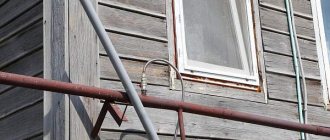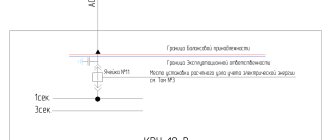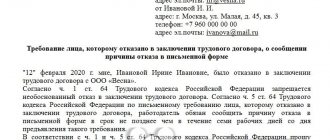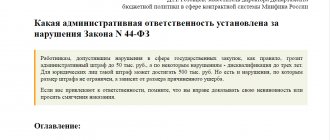Home/Water supply and sanitation/Unauthorized connection of water supply
Attention
Unauthorized connection to water supply networks is illegal use of water resources. This is not only an offense, but can provoke unforeseen and dangerous consequences, including serious breakdowns in the water supply system. Unfortunately, many unscrupulous users are not stopped by possible punishment, so every year the number of cases of illegal use of water supply is steadily growing.
When is a connection to a water supply system considered unauthorized?
In the legal environment, unauthorized connection to the water supply network means unauthorized access of a person to a resource without concluding an agreement with the water supplier or in case of identified violations of the technical regulations for this work. Legal connection is carried out only after concluding an agreement with the water utility and obtaining permission to transport water.
It is a violation to use the water supply network without installing metering devices or meters. Devices are needed in order to track actual water consumption, and their absence makes this task impossible for regulatory authorities. According to current legislation, a subscriber is a person who owns water supply facilities connected to the water supply system under an agreement with Vodokanal.
Attention! If you have any questions, you can chat for free with a lawyer at the bottom of the screen or call Moscow; Saint Petersburg; Free call for all of Russia.
How to avoid punishment
To avoid punishment for unauthorized connection to Vodokanal main networks, the connection should be immediately legalized. Of course, it will not be possible to avoid financial costs, but they will be significantly less than if the unauthorized insertion is detected by the service provider’s employees.
The apparent “savings” on unauthorized insertion ultimately results not only in financial costs, but also in significant reputational losses for the subscriber. Therefore, in order to avoid negative consequences from such an initiative, everything should be done officially - agree on the connection, conclude an agreement and pay for utilities on time.
Watch the video. Legalization of plumbing connections:
Normative base
The procedure for connecting to the water supply system is regulated by a number of regulations. Thus, the procedure for this procedure is established by Decree of the Government of the Russian Federation No. 167 “Rules for the use of public water supply and sewerage systems in Russia.” Next comes Resolution of the PRF No. 354 “Rules for the provision of utility services to owners and users of premises in apartment buildings and residential buildings.” According to the above documents, unauthorized insertion of pipes without drawing up an agreement with the water supply company is considered illegal. Based on these rules, the utility company can file a claim against the violator.
In Art. 20 Federal Law No. 416 “On Water Supply and Sanitation” identifies objects that must be accounted for. These include quantities:
- water transported to the user over a certain time according to water supply conditions;
- water received by the person operating the water supply section;
- wastewater received from the subscriber and transported by specialized organizations.
Administrative punishment for unauthorized connection of water supply is established by Article 7.20 of the Code of Administrative Offenses of the Russian Federation “Unauthorized connection to centralized water supply and sanitation systems.” Its legal basis is based on Decree of the Russian Federation No. 167 of 02.12.99 and a number of other regulatory documents. Monitoring compliance with the rules for the consumption of water resources is carried out by officials representing the bodies responsible for water supply facilities, as well as the police (Articles 23.23 and 28.3 of the Code of Administrative Offenses of the Russian Federation)
What applies to unauthorized connection to the water supply?
If a consumer connects without permission or in violation of the agreed conditions, then such a connection is considered unauthorized.
This conclusion is confirmed by the Rules for the use of public water supply and sewerage systems, which were approved by Decree of the Government of the Russian Federation No. 167 of February 12, 1999.
Thus, this regulatory document recognizes the actions of the consumer as illegal if pipes are inserted into the water supply without obtaining technical conditions and concluding a water supply contract.
How to write an application to replace a sewer riser in an apartment?
On the one hand, the consumer, an individual or legal entity, participates, and on the other, Vodokanal or another enterprise that provides the technological process for collecting, preparing, transporting and transferring drinking water to users.
The service provider providing the process of water supply and sewerage to facilities in the service territory has the right to file claims for recovery of damage caused.
Article 7.20 of the Code of Administrative Offenses of the Russian Federation understands the definition of “subscriber” as:
- individual,
- individual entrepreneur,
- entity.
Subscribers have the right of ownership or economic (operational) management of facilities, water supply systems directly connected to the main public water supply networks, based on the rights of concluded agreements with the water supply and sewerage sector.
According to the Rules for the Use of Water Supply and Sewerage Systems in the Russian Federation, interaction between the subscriber and Vodokanal must be based on contractual relations.
Rules for connecting to water supply
Since the water supply is under the control of the utility service, connecting new subscribers is the responsibility of these specialists. Independent connection is also possible, but only after prior approval of this issue with the communal farm. Then the tie-in procedure will be carried out by utilities.
The installation of a water pipeline occurs in three stages:
- conclusion of an agreement with the water and utility sector;
- laying a pipeline;
- connection to the main line in accordance with legal requirements.
IMPORTANT
Water supply elements must be connected to the main in a certain way using specialized equipment. Only employees of the water supply organization are allowed to work; meters are required to be installed, and scheduled technical inspections of water supply equipment are carried out.
The subscriber is prohibited from:
- use unqualified services when installing water pipes;
- connect to the system devices that are not provided for by the rules of the connection procedure;
- interfere with the operation of meters and other control and measuring instruments;
- drain water from heating equipment.
Rules for using the object
In accordance with the rules adopted in August 1995, a private individual is obliged to:
- allow employees of the service organization to carry out checks and inspections of water supply consumption meters, as well as the condition of water supply equipment in general;
- When using water supply and sewerage, observe safety precautions;
- do not violate the operating procedure of the water supply system.
Vodokanal employees regularly inspect existing water supply networks and quickly identify illegal connections
A private person is prohibited from:
- independently re-equip engineering communications without permission from the service organization. It was said above that illegal tapping into the water supply will cause administrative liability;
- connect electrical and other devices to the water supply system that exceed the permissible (calculated) technical capability of indoor plumbing equipment;
- modify existing instruments that measure the volume of services provided;
- drain heating appliances.
Punishment for unauthorized connection of water supply
Unauthorized connection of water supply is the reason for the application of penalties:
- for organizations – from 20 to 30 thousand rubles;
- for officials - 2-3 thousand rubles;
- for citizens and individual entrepreneurs – 1-1.5 thousand rubles.
Representatives of the water supply and communal services draw up a report indicating the violations identified during inspections, information about the violator and the service provider. Based on this document, the person is brought to administrative responsibility.
Attention
If the fact of long-term illegal use of water has been revealed, the violator faces a fine, which is calculated using the formula S = P*D*V , where P is the maximum pipe diameter, m3; D – days in the past six months; V is the cost of m3 of water. The result is multiplied by the number of days the water was consumed illegally. Its value can be much larger than the monthly payments for water use.
In addition to fines for unauthorized connection of water supply, the offender may be subject to criminal liability regulated by Article 165 of the Criminal Code of the Russian Federation. Then the person faces imprisonment, since such a crime is regarded as theft of property.
In any case, if an illegal tap is discovered, it will be dismantled and the facility will be left without water supply.
Illegal connection of water supply to a well
Private residences are most often connected to wells. This is not only cheap, but also allows you to use communications autonomously, since the water source is non-centralized. However, underground sources are minerals and fall under the requirements of Federal Law of the Russian Federation No. 2395-1 “On Subsoil”, which states that in order to use subsoil one must obtain a license. This applies in particular to entrepreneurs.
IMPORTANT
Since an artesian well contains a lot of fresh water, such a source is strategic. Article 19 of the Federal Law of the Russian Federation No. 2395-1 determines the possibility of using water reserves from a well without a license only those that are not listed on the state balance sheet, and the amount of pumped water is no more than 100 m3 per day. In addition, aquifers should not belong to the centralized water supply system. Any commercial activities in relation to water are prohibited and require a license: the resource can only be used for personal needs.
Unauthorized connection of a water supply to an ownerless well
Accounting for abandoned objects involves certain difficulties for governing bodies. Duties and responsibilities for maintaining a water supply system without an owner are transferred to municipal institutions that maintain such facilities at the expense of budgetary funds.
According to Article 8 of the Federal Law of the Russian Federation No. 416, the RSO is responsible for the operation of identified abandoned wells after approval of the act of transferring the object into the ownership of the water and wastewater services sector. Consequently, connection to a registered well is carried out in the same way as the procedure for connecting to a centralized water supply network - after concluding a contract and carrying out engineering work on the water supply section.
Additional accrual
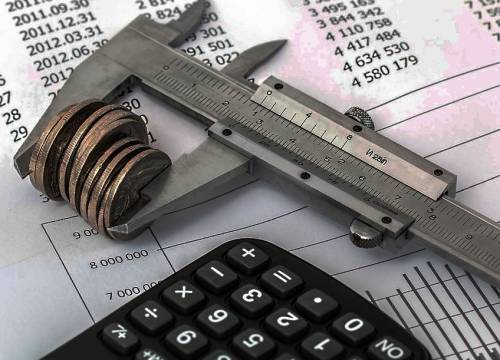
Before making additional charges for unauthorized connection to utility systems, it is necessary to establish the fact of unauthorized access to resources. To do this, service employees check:
- serviceability and performance of meters;
- the presence of seals and other instruments that record illegal interference in the operation of equipment;
- absence of vulnerabilities in connections between devices for monitoring and accounting of consumed services.
Possible consequences of unauthorized connection to the water supply system
Illegal connection to the water main not only causes material damage to the service responsible for the water supply, but also poses a danger to violators and their neighbors. Illegal tapping worsens the quality of drinking water, leads to contamination of pipelines and causes the development of dangerous microorganisms in the water, such as E. coli and so on.
For your information
Another common situation that arises during unauthorized tapping is serious technical violations in the water supply system. So, there may be a decrease in water pressure or, on the contrary, an increase in its supply pressure. If the water supply is laid incorrectly, the pipes freeze in winter, which also leads to serious damage to the system. Therefore, it is so important to connect and maintain the water supply through specialized services.
Where to go to connect in accordance with the law
To connect to water supply and sewerage systems, you should contact the nearest water utility. If you live in an apartment building and you don’t have water, you can contact your management company.
It is impossible to live without hot and cold water, but stealing it is bad, and you cannot use it for free in Russia. Unauthorized connection to water supply systems causes serious damage not only to the company that supplies the water, but also to the people who pay for it in good faith.
In addition, such interference can cause a breakdown of the entire supply system. And if the case of illegal tapping goes to court, then you can even end up with large sums, and this is not counting the administrative fine.
Therefore, it is better not to do this, to eliminate violations, if any, or to legalize the connection, and it is best to immediately do everything in accordance with the provisions of the law.
Actions if you have already connected to the network without permission
Sometimes new home owners discover that they are connected to the central water supply system illegally. Often, in situations of unauthorized connection of water supply, it is very difficult to prove one’s non-involvement in breaking the law. Citizens who discover that they are using water illegally are required to immediately report this to the utility service.
As a rule, after identifying the fact of unauthorized connection of the water supply, a commission is assembled, which draws up a corresponding act and disconnects the user from the water supply. If a person has evidence of non-involvement in the violation, then sanctions can be avoided. In this case, you will need to legalize your connection to the network. An insert made in compliance with the requirements of SNiP is not dismantled, however, the user of the resource must collect a package of documents, including permits, certificates, and technical documentation.
IMPORTANT
Licensing of illegal tapping is carried out by organizations located on the territory of the local water utility. They will help you fill out an application for connecting a new line. This will help avoid possible fines and other penalties.
Identified connection - what to do
Many users have a question about what to do if a citizen purchased a home, and it turned out that the centralized water supply was connected without legal grounds. As practice shows, in such a situation it will be extremely difficult to prove one’s non-involvement in the violation, especially in situations where a lot of time has passed since the acquisition.
If a citizen has discovered that he is using water illegally, it is necessary to notify the relevant authorities about the current situation as soon as possible.
Based on a written request, a special commission will be created that will draw up an act on illegal tapping into the water supply and will disconnect the user from the water supply.
However, if it is revealed that the user is not involved in the violation, for which he has the necessary evidence, he will avoid disconnection and subsequent fines, but only on the condition that he completes all the actions necessary to legitimize the connection to a system such as central water supply. In this situation, he will be able to continue to use water, paying for it according to the established tariffs.
Arbitrage practice
Below are examples taken from judicial practice in the form of claims against persons who unauthorizedly connected to the water supply:
- The water utility of city A filed a lawsuit against citizen B to recover payment for illegal connection to the water supply network. The defendant’s home was disconnected from the system, and the court, based on witness testimony, decided to recover from B the amount of money that Vodokanal demanded and legal costs. The defendant may file an appeal within a week from the date of delivery of a copy of the court decision.
- Vodokanal LLC "B" filed a lawsuit against B to collect debt for the use of water resources and sewerage without concluding an agreement. Citizen B is the owner of a non-residential property, as a result of an inspection it was determined that the water supply was connected illegally. Referring to the rules for using water supply systems, the court ruled that the defendant is obliged to pay the amount required by Vodokanal LLC “B” and the cost of the state fee for the trial.
